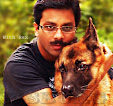Your Behavior Can Contribute to The Aggression of Your German Shepherd Dog
Is your German Shepherd Dog aggressive? Aggression, to the desirable extent, is a part of the breed's natural character, although these dogs usually make great companions for your family and can prove to be quite good with kids. Too docile nature of German Shepherd will compromise his guarding and protective instincts, and would make him undesirably friendly with strangers, which is a serious fault in his character. While, on the other hand, too aggressive nature can be a way to get over you... that is to become the alpha member of the pack. His over aggression can be a challenge thrown towards you to acquire the alpha position. Do not surrender your position to your dog. Successful and technical dog ownership demands you to be the leader of the pack. It is only if you are the alpha of your pack, that you can be successful in your attempts controlling your dogs. Retaining the alpha position of the pack doesn't mean you will yell at him. Remember... Yelling, punishing and hurting him doesn't work. Beating him or punishing him will cause fear-based aggression. Aggressive dog training, be it with German Shepherds or for any other breed, involves correcting measures without punishing him. Yelling and punishing your aggressive German Shepherd Dog will simply stimulate your dog's fear and increase his aggression. Many people have been mailing me asking for suggestions about their aggressive GSD. Most of them have more than one dogs and they fight when they get to meet together. Sam's problem iss that his GSD tends to attack fearlessly his Labrador when they are given food at the same time. His trainer asked him to feed them separately. He said, now he has to pay double the charge paid to the one who walks his dogs, because he has to walk them separately. But this is not permanent solution! I am sure most people cannot afford to keep their dogs closed separately.
Many people have been mailing me asking for suggestions about their aggressive GSD. Most of them have more than one dogs and they fight when they get to meet together. Sam's problem iss that his GSD tends to attack fearlessly his Labrador when they are given food at the same time. His trainer asked him to feed them separately. He said, now he has to pay double the charge paid to the one who walks his dogs, because he has to walk them separately. But this is not permanent solution! I am sure most people cannot afford to keep their dogs closed separately.
My suggestion to people like Sam would be simple...
Find out why your dogs are aggressive towards each other. Did you not socialize them during their puppy hood? Or do both of them need dominance? If you did not have socialized them properly, it was your fault. If they both are fighting your dominance, it's again your fault. Dogs are quite intelligent,. and can learn things throughout their life. take them to the external world. Allow them meet situations, and experience strangeness of the nature. I would suggest you take both your dogs together - and take them in an entirely new area, where they have never been to before. Strangeness of new places will mitigate their aggression towards each other. In a new area they won't be claiming their territory and position, because they know they are new there. Each of your dogs will need one another to form a team there. Well, by this I mean to say their sense of lack of confidence in a new place will make them look for each other's company. Make them play... let them be dead tired.
Next step is simple for experienced, but may be a bit tough for new owners.
Bring them home and now do not lock them in separate places. Take them along with you in your hall. They are tired, and need rest now. Make them lie in the same hall at two different corners. Provide them water in separate bowl. Be there yourself; keep an eye on both and try to maintain your position as an alpha of the pack of three - you and your two dogs. Do not too soft will giving them command. Say "NO" firmly, whenever required. Don't allow them to get on you.
My third very important suggestion...
Love them - but do not demonstrate preference - neither Rover over Rolley nor Rolley over Rover. The slightest demonstration of preference one over the other will make the other jealous, which will stimulate his aggression. Both of them should exercise together until they are tired. They should get the equal share of you love and touch. The aim is be at diminishing their jealousy towards each other.
Check out my post on handling aggressive German Shepherds
Know more about German Shepherd Dog - Ultimate Destination for Resources About German Shepherd Dog
























